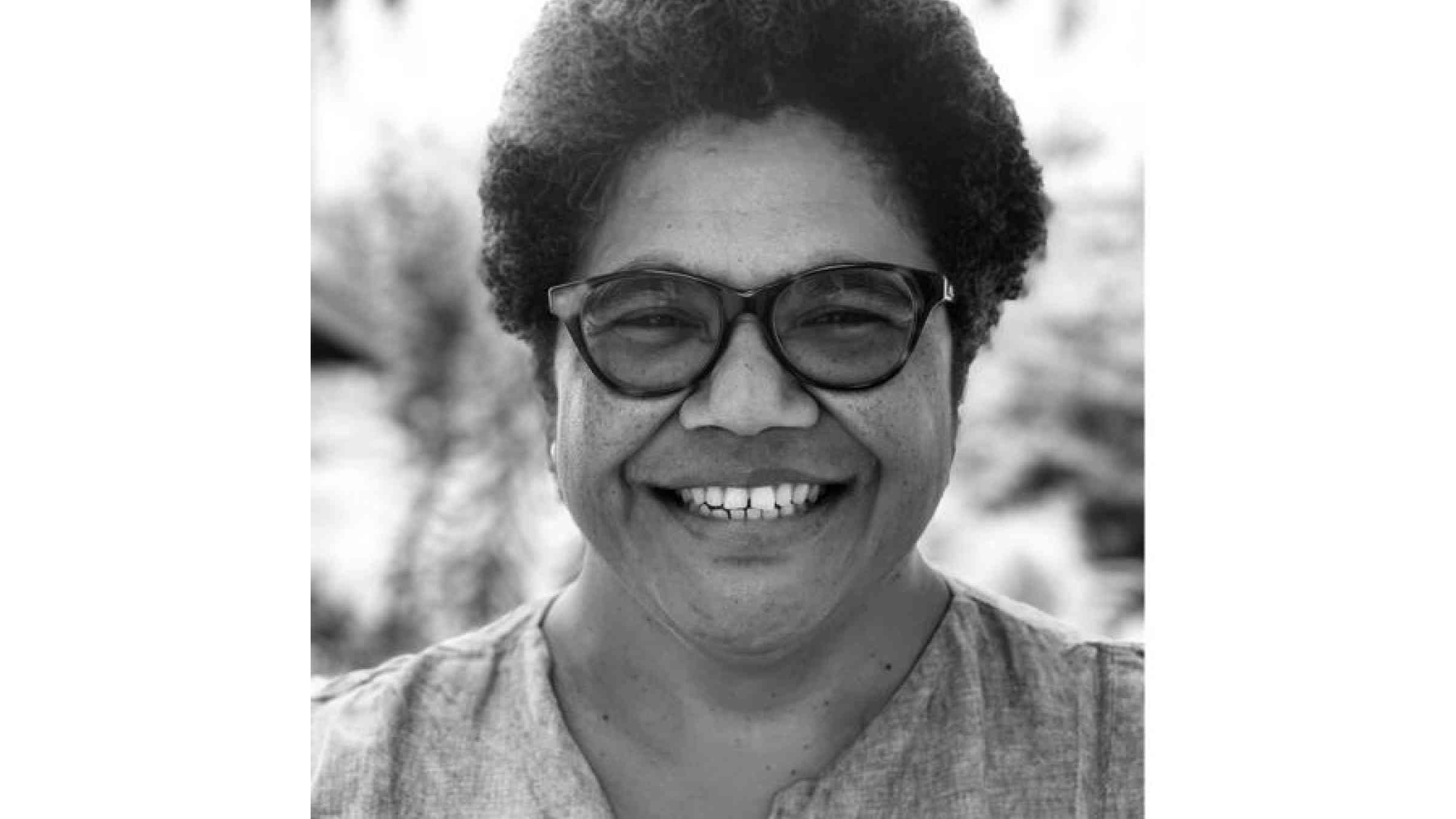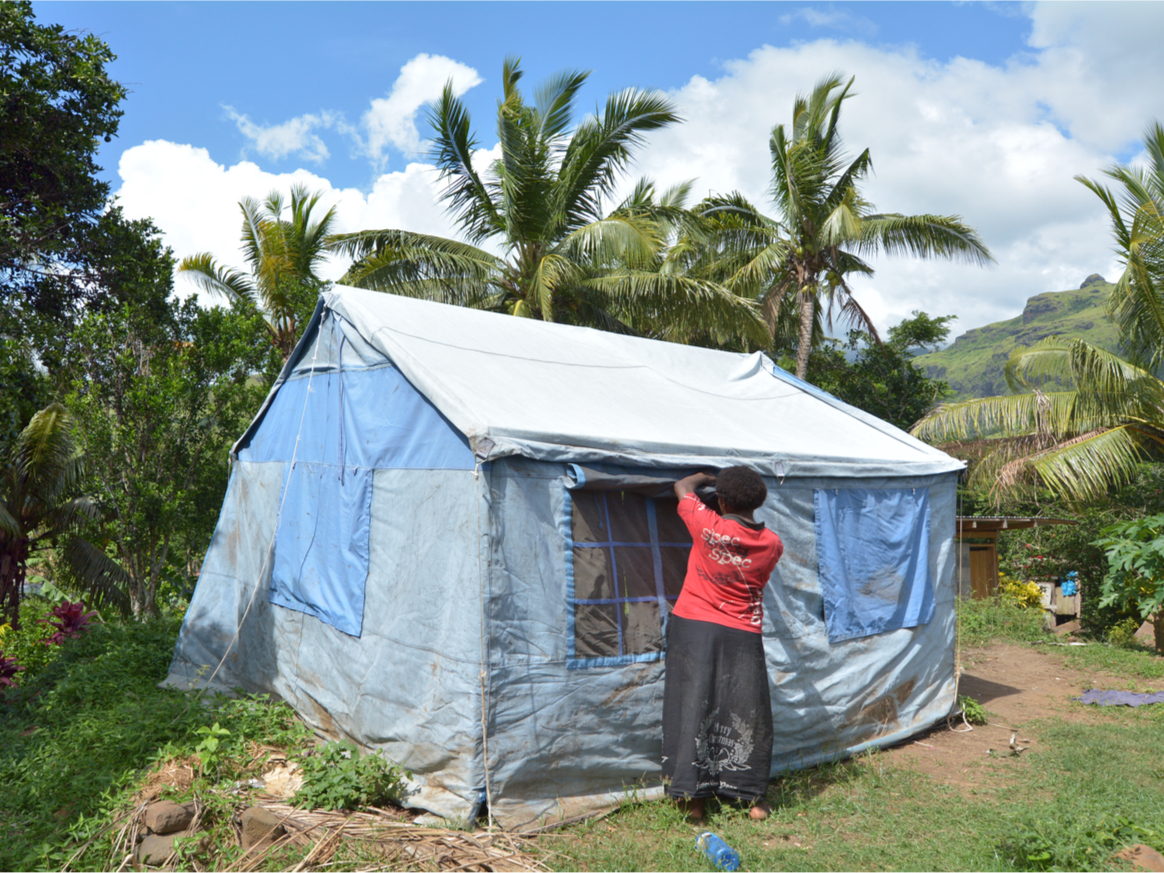Please help us improve PreventionWeb by taking this brief survey. Your input will allow us to better serve the needs of the DRR community.
Counting Women in Fiji for risk-informed development

Litea Biukoto
“Having data systems in place with consultations with the community helps ensure that the designs that are being considered are not just environmentally sound, but also culturally sensitive.”
The foundation for risk reduction and development is understanding what those risks are,” says Litea Biukoto. “Understanding those risks means that you need to understand the hazard landscape. What are the elements of risk that we're dealing with and then what do we do to reduce them?”
Litea is the Team Leader for Risk Reduction with the Pacific Community based in Suva. She says good data about women is essential in dialogue about development and disaster planning.
“What we're finding is that we're having to spend effort with partners explaining the data collection process, but also helping them understand why we're collecting this data,” she says. “Then you see the lights come on when you start to explain why this type of disaggregated data is important.”
Litea says data on women helps inform risk assessments that are now driving long-term development plans, which helps to ensure that they are inclusive of everyone, and no one is left out.
"As you start to plan out these investment profiles or utilities, first try to understand what the risk is for that investment,” Litea says. “There is a significant increase in investment in understanding the science around hazards, the vulnerabilities and then how to mitigate some of the risks that they're seeing.”
She admits that data alone is not the solution, but part of a mosaic of tools in disaster risk reduction.
"There is no silver bullet, but a suite of solutions that countries and even communities need to consider.” she says. “Having data systems in place with consultations with the community helps ensure that the designs that are being considered are not just environmentally sound, but also culturally sensitive.”
Litea says that some development projects have failed to reflect the concerns of women. Better community consultations are helping change that.
“If you don't engage with women, I mean really engage with women, in a community or a city, even nationally, what you get are these broad-brush statements,” Litea says. “We need to get to the root of why it's important to understand gender dimensions and considerations.”
She says male allies in disaster risk reduction make a meaningful difference.
"Across the Pacific there are male champions collecting, assessing and providing for gender considerations,” Litea says. “We have a few, but we need more male voices that appreciate this, because then it becomes more than just a concern about women. When you start to consider the importance of women it impacts more than just them.”

Photo: ChameleonsEye/Shutterstock
Litea is grateful to the male mentors who have helped her advance her career.
“When I started work,” she recalls, “those men that I worked with in this organization as well as with national counterparts, they provided me the platform to have a voice.”
While progress has been made in creating a place at the table for women leaders in disaster risk reduction (DRR), Litea says more needs to be done to support and inspire the next generation.
“There is a need for women professionals like myself to be available to mentor young women professionals,” she says. “I don't think there's enough of that happening. To be able to say: this is what you can do, this is where you can work, and this is what you can do with what you have.”
Join the Women’s International Network on Disaster Risk Reduction by clicking here.
Twitter: https://twitter.com/WIN_DRR
LinkedIn: https://www.linkedin.com/groups/13945120/
The Women's International Network on Disaster Risk Reduction (WIN DRR) is a professional network to support women working in disaster risk reduction, in all their diversity. WIN DRR promotes and supports women's leadership in disaster risk reduction across the Asia Pacific region, and aims to reduce the barriers faced by women and empower them to attain leadership and enhance their decision-making in disaster risk reduction. WIN DRR is supported by UNDRR and the Government of Australia.
Litea is the Team Leader for Risk Reduction with the Pacific Community based in Suva, Fiji.
Explore further
Please note: Content is displayed as last posted by a PreventionWeb community member or editor. The views expressed therein are not necessarily those of UNDRR, PreventionWeb, or its sponsors. See our terms of use
Is this page useful?
Yes No Report an issue on this pageThank you. If you have 2 minutes, we would benefit from additional feedback (link opens in a new window).